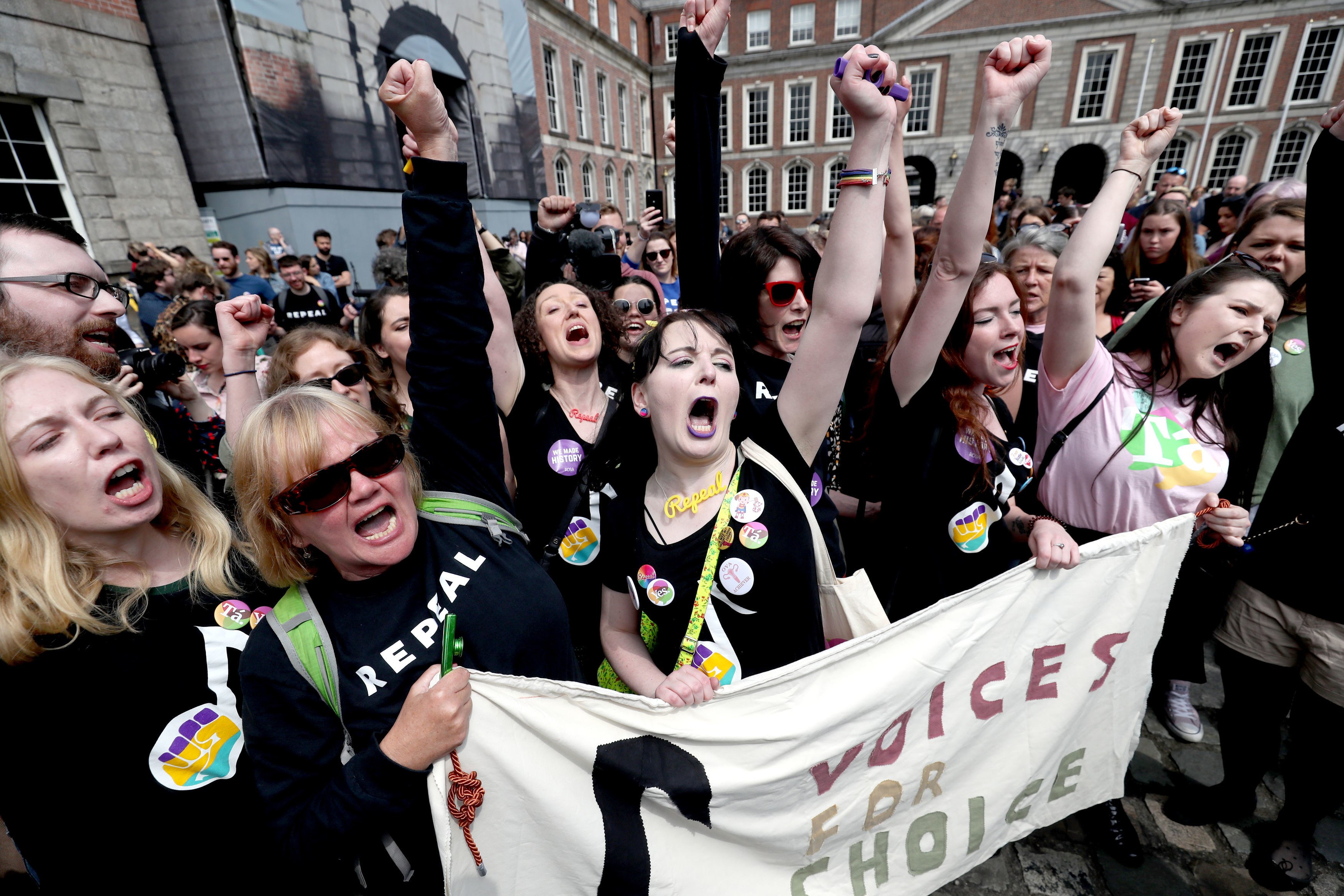Ireland Has Voted to Repeal Its Abortion Ban

It’s official, and by a landslide: The people of Ireland have voted to repeal the eighth amendment of its constitution, which currently says an unborn child has an equal right to life as the woman carrying it, effectively placing a total ban on abortion.
With 37 out of 40 constituencies reporting as this article was published, 67.3 percent of Irish citizens voted for the repeal, and 32.7 percent against—with just one remaining constituency, Donegal, expected to vote “no.”.
Abortion has been illegal in Ireland since 1861. In 1983, this was written into the country’s constitution with the passage of the eight amendment, which reads: “The State acknowledges the right to life of the unborn and, with due regard to the equal right to life of the mother, guarantees in its laws to respect, and, as far as practicable, by its laws to defend and vindicate that right.” This effectually outlaws abortion completely, including in situations of rape, incest, and if the fetus a woman is carrying has a fatal condition.
According to the most recent data from U.K. Department of Health, more than 170,000 Irish women are estimated to have traveled to the U.K. and the Netherlands for abortions since 1980. It’s also estimated that, every day, nine women make the journey from Ireland to the U.K. to have a legal abortion. Then, there are those who either choose to or must stay home, as not all can afford flights, hotels, lost wages, and childcare while away—an estimated 1,500 women each year take abortion tablets without any medical supervision; if they’re found in possession of said pills, they could face jail time for up to 14 years.
But the Ireland of today is a very different place than the Ireland of 1983, says Glamour’s editor-in-chief, Samantha Barry, who’s a native of Cork
“To Americans it might sound like we’re slow to adopt cultural norms you’re accustomed to, but progress has been made: In 1985 the Irish government approved the sale of contraceptives, divorce became legal in 1995 following another referendum, and Ireland is now the European hub of some of the largest and most innovative tech companies in the world, including Google and Facebook,” she wrote ahead of the repeal. “Our current political leader, Prime Minister Leo Varadkar, is the gay son of Indian immigrants!”
When news of the repeal vote broke, Varadkar posted about it on his Twitter account: “Fantastic crowds at Dublin Castle. Remarkable day. A quiet revolution has taken place, a great act of democracy,” he wrote.
https://twitter.com/campaignforleo/status/1000399513289482242
In light of this historic referendum, many Irish ex-pats have traveled home to vote. (Unlike the United States, voting by mail or absentee ballot is not an option for Irish folks living outside the country.) One woman, Elaine Arnold, told Glamour she spent over $1,500 Australian dollars to travel from Sydney to her hometown of Dublin to do so; another Irish native, Sorcha Lowry, used her credit card and her only vacation days at a new job in New York, where she currently lives, to make sure she voted “yes” to the repeal.
“The minute the date was announced for the referendum, I booked my flights,” Lowry told Glamour. “I have to be part of it. Not turning up would essentially be a ‘no’ vote, so I have to do my bit.”
Though after 35 years in effect, the people of Ireland have voted to repeal the eight amendment, abortion won’t be available overnight—rather, it will be replaced by a clause that reads: “Provision may be made by law for the regulation of termination of pregnancy.”
But it seems like that provision is coming: According to Sky News’ senior political correspondent, Ireland’s health minister, Simon Harris, said on Saturday he’ll ask for formal approval to turn a draft of abortion law into “full text.”
Meanwhile, the Guardian reports that Varadkar hopes that laws allowing abortions in the first 12 weeks of pregnancy will be in place by the end of this year.
Related Stories:
